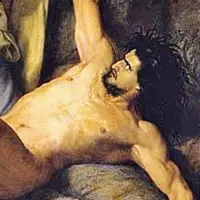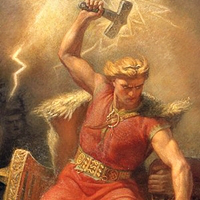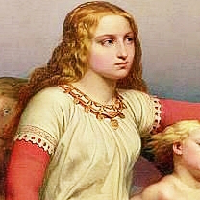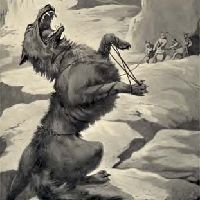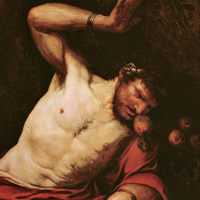Odin MBTI 성격 유형
인격
"Odin은 어떤 성격 유형입니까? Odin은 mbti의 INTJ 성격 유형입니다. enneagram의 5w4 - sx/sp - 548, big 5의 RCOEI, socionics의 ILI입니다."
Odin, is a mastermind, predicts everything, (and doesn’t get it perfectly right which demonstrates its at least partially generated from cognition rather than pure God-power) and would sacrifice parts of his corporeal being to attain insight of the underlying anatomy of the world. Si user would never trade physical comfort for cognizance or clairvoyance. When push comes to shove XnXps will always choose physical security to universal knowledge. Odin doesn’t engage in frivolous debates, he is simply right (until he is wrong). That is Ni. Te hungers for worldly knowledge. Ti is directed inwards, operating on an internal logic that is largely detached from the physical world. Odin leans towards te. Odin is definitely INTJ.
전기
Odin (pronounced oh-din), often referred to as the "All-Father", is the leader and creator of the Norse pantheon. Along with his brothers, Vili and Ve, he slew the great frost giant Ymir and made the earth out of the giant's body. He also, directly or indirectly, fathered most of the Norse gods and helped create the first man and woman. Odin's first concern is battle, but he is also the god of knowledge, wisdom, poetry, and inspiration. Odin has one eye that blazes like the sun, having lost his other eye in payment for a drink from the well of Mimir. He once stole the mead of poetry, and some myths say he grants poetic ability and inspiration to mortals. Odin hung himself on Yggdrasil for nine days, pierced by his own spear, until by virtue of his suffering he was able to reach down and seize magical runes that were the source of wisdom and magical lore. His suffering so impressed the son of the giant Bolthor that he taught Odin nine magical songs that allowed him to master eighteen magical spells previously unknown to any man or woman. Odin is fated to be swallowed by Loki's son Fenrir at Ragnarok, but his own son Vidar will avenge him. Now he dispenses wisdom from his throne Hlidskiaf (which is guarded by a proxy and a mass of petitioners), and rides his eight-legged horse Sleipnir to sites that require his personal attention. Some say the horse has eight legs because that's the number of legs a coffin has (when it's carried by four pallbearers); thus, Odin's really riding a casket into battle. In any case, the All-Father epitomizes the Norse race. He's savage and wise at the same time, straightforward and subtle as the mood strikes him. He rewards power with power, and only a few things anger him: aiding a giant, losing a battle, or breaking the laws of hospitality. Odin controls three halls in Asgard. The first is Valaskiaf, from which he rules. The second is Gladsheim, the common hall of the Aesir, where they meet to swear loyalty to and share mead with their leader. The third is Valhalla, where the mightiest warriors of the northmen are transformed into the einheriar. During the day, the place is mostly empty, as the einheriar are out honing their combat skills on each other. But at night, Valhalla's filled with the riotous noise of the feasting petitioners, all celebrating their triumphs of the day. In his true form, Odin appears to be a man of about fifty with a patch over one eye. He has a bald head and a long grey beard, and usually wears a gray tunic beneath a hooded cloak of blue. He is often accompanied by two old wolves and two ravens which perch on his shoulder. Wearing a dark, wide-brimmed hat that casts a shadow over his face, Odin travels as a mortal wanderer. As a god of magic, war, and wisdom, he visits Midgard to distribute knowledge and victory in battle. His many titles hint at his various roles.

